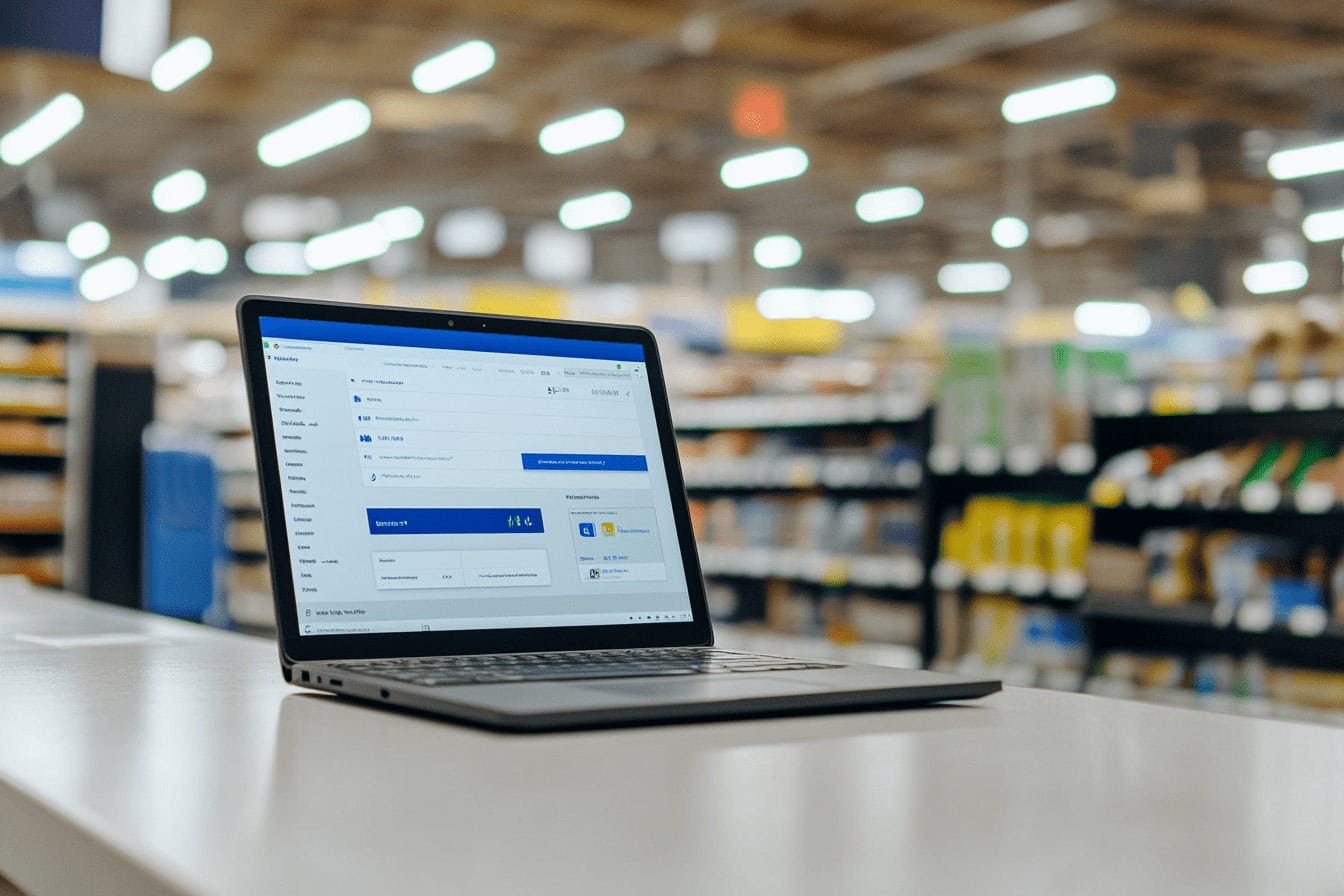Payment gateways are essential to the success of an eCommerce business. They allow businesses to accept credit card payments and other payment methods. They also act as a secure channel to send customer payment information, protecting both customers and your business from fraud.
Online payment gateways are crucial, so you should know everything about them, including their different types and benefits, and get one for your business. This comprehensive guide from Payment Nerds will explain everything you need to know about payment gateways. Learn it all and make sure your online business succeeds with the perfect payment gateway.
What are Payment Gateways?
Payment gateways are provided by payment service providers that process and authorize payments for eCommerce businesses. They act like a digital bridge between your online store and your customer’s bank or credit card network[1]. In some cases, they even handle bank-to-bank transactions. Overall, they ensure funds are securely transferred from their bank accounts or credit cards to your business’s merchant account.
Payment gateways perform a number of necessary functions as part of your eCommerce payment processing system. These include:
- Authenticating transaction details
- Encrypting sensitive customer data
- Facilitating seamless communication between the customer’s bank, the merchant’s bank, and any intermediary payment processors.
In short, without a payment gateway, these critical functions wouldn’t be possible, and online businesses wouldn’t be able to accept electronic payments safely.
Types of Payment Gateways
Payment gateways come in various types, each designed to cater to specific business needs. Understanding these categories can help you choose the right gateway for your eCommerce store.
| Type | Description |
| Hosted[2] | Hosted gateways redirect customers to a third-party website to complete their transactions. After payment, customers are redirected back to your site. These gateways are easy to set up and secure since the payment provider handles compliance with regulations like PCI-DSS. |
| Self-Hosted[2] | In self-hosted gateways, the payment processing occurs directly on your website. Customers enter their payment details on your platform, and the information is sent to the payment gateway for processing. This option offers more control over the customer experience but requires more in-house technical capabilities. |
| API-Hosted[2] | API-hosted gateways allow developers to integrate payment processing directly into the website or app via an application programming interface (API). This allows customers to complete their transactions without leaving the platform. These gateways are highly customizable and flexible, making them a favorite for businesses with specific needs and preferences. |
Why Payment Gateways are Important
Payment gateways are the backbone of modern eCommerce. They are tailored to handle card-not-present transactions, enhance the customer experience, drive sales, and protect against risks. Below, we go into more detail about why online payment gateways are so important:

Keeps Payment Fast & Simple
In today’s fast-paced world, customers expect quick and hassle-free transactions. A payment gateway speeds up the payment process by automating it. Instead of manually verifying payments, gateways handle everything in seconds, allowing customers to complete their purchases without delay.
A streamlined checkout process reduces cart abandonment rates, which is crucial for improving conversion rates in eCommerce.
Creates Better Buyer Confidence
Trust is essential in eCommerce, especially when customers share sensitive financial details. A reliable payment gateway reassures buyers that their information is safe. Businesses can boost buyer confidence and encourage more purchases by displaying well-known gateway logos like PayPal, Stripe, or Authorize.net.
Provides More Customers
Many payment gateways support multiple currencies and payment methods, opening your business to a global market. Whether your customer wants to pay with a credit card, digital wallet, or bank transfer, a good gateway accommodates these preferences, making your business accessible to a broader audience.
Secures Transactions from Fraud
Security is a top concern for online transactions. Most credit card payment gateways have advanced fraud detection tools such as encryption, tokenization, and AI-powered monitoring. These features help protect your business and customers from fraudulent transactions, chargebacks, and data breaches.
How to Get a Payment Gateway for Your Business
Choosing and setting up a payment gateway might seem overwhelming, but it’s straightforward when broken down into manageable steps. Here’s how we recommend finding one for your company:
- Assess Your Business Needs:
Start by evaluating your business model and customer base. Consider factors like transaction volume, preferred payment methods, and geographical reach. For example, if you plan to sell internationally, you will need a gateway that supports multi-currency transactions. - Research Gateway Providers:
Explore different payment gateways to find one that fits your needs. Popular options include Stripe, PayPal, Square, and Authorize.net. Compare features like setup fees, transaction fees, and integration options with your eCommerce platform. - Ensure Compatibility with Your Platform:
Check whether the payment gateway integrates seamlessly with your eCommerce platform, such as Shopify, WooCommerce, or Magento. Many platforms offer built-in compatibility with popular gateways, simplifying the setup process. - Apply for a Merchant Account:
Most eCommerce payment gateways require a merchant account to process transactions. A merchant account is a type of bank account that temporarily holds funds from customer transactions before transferring them to your business account. - Set Up and Test Your Gateway:
Once approved, integrate the payment gateway into your online store. Test the checkout process thoroughly to ensure it works correctly and provides a smooth customer experience.
Payment Processing Through Payment Gateways
There are several steps to payment processing within a payment gateway. Though the process is similar to processing payments in a brick-and-mortar store, it is still crucial to learn how to ensure smooth and secure transactions. Here’s a detailed look at the process:
1) Customer Initiates Payment
When customers select a product or service on your website, they proceed to the checkout page. Here, they choose their preferred payment method — credit card, digital wallet, or bank transfer — and enter their payment details.
2) Data Encryption
Once the customer submits their payment details, the payment gateway encrypts this data using SSL (Secure Socket Layer) technology. Encryption ensures that sensitive information cannot be intercepted or accessed by unauthorized parties during transmission.
3) Authorization Request
The encrypted payment data is sent to the customer’s bank or card network (like Visa or Mastercard) for authorization. They will check whether the customer has sufficient funds or available credit. They will also take fraud prevention measures to verify the transaction was made by the cardholder and not a malicious hacker.
4) Transaction Approval
If the bank or card network approves the transaction, it sends a confirmation back to the payment gateway. This approval is then relayed to your website, where the transaction is completed. If the transaction is declined, the gateway provides an error message, such as “insufficient funds,” explaining the reason.
5) Fund Settlement
The approved payment is processed and transferred to your merchant account, usually within a few business days. At this stage, eCommerce payment gateways will also deduct transaction fees.
The Difference Between Payment Gateway & Payment Processor
Payment gateways and processors can easily be confused, but they have significant differences. The payment processor handles the back-end operation, transferring funds between the customer’s bank and the merchant’s bank. Think of it as the logistics provider that moves the money.
On the other hand, the payment gateway is located on the front end of your online store’s website. It connects your eCommerce store to the payment processor, authorizes transactions, and ensures data security. While the payment gateway ensures a secure and seamless checkout experience, the processor ensures that the money actually moves to your account. Both are essential for smooth payment operations.

Finding the Best Payment Gateway for You
Choosing the right payment gateway is a critical strategic decision that can impact your eCommerce business’s success. To find the best option, you must evaluate various factors, including cost, customer experience, security, scalability, and integration.
Below, we dive deeper into each of these considerations to help you make an informed choice.
Consider Your Budget
The cost structure of online payment gateways can vary widely. Typical fees include setup fees, monthly fees, per-transaction fees, and sometimes additional charges for advanced features like multi-currency support or fraud detection. Researching these costs will help you determine the long-term financial impact of adopting a particular payment gateway provider.
Evaluate Customer Experience
Choose a gateway with a user-friendly checkout experience. A seamless and intuitive payment experience can significantly reduce cart abandonment rates and boost customer satisfaction. Modern customers expect convenience, speed, and multiple payment options. That’s why you should look for features like one-click payments and digital wallet integration that can enhance customer satisfaction.
Prioritize Security Features
Online security is critical for building customer trust and protecting your business from fraud. A secure payment gateway should include robust features that safeguard transactions, particularly automatic data encryption and tokenization. You should also ensure the gateway you choose complies with PCI DSS (Payment Card Industry Data Security Standard) requirements and offers robust fraud protection services.
Look for Scalability
Your payment gateway should grow with your business. Whether you’re adding new product lines, expanding into international markets, or handling seasonal sales spikes, a scalable gateway ensures uninterrupted performance. Some key scalability features that will help your business grow successfully in the long term are:
- Multi-currency support
- Subscription billing
- Advanced sales and customer analytics
Check Customer Support
Payment issues can directly impact your revenue, making reliable customer support a non-negotiable feature. The right gateway provider should offer fast, efficient support through multiple channels, such as live chats, email, and phone calls.
Top Payment Gateways to Consider
Choosing the right payment gateway is critical for your eCommerce business, and there are many reputable providers available. Below, we highlight a few top options, starting with our own trusted service, Payment Nerds:
- Payment Nerds: We provide reliable, secure, and scalable payment gateways and other solutions tailored for eCommerce businesses. We also offer transparent pricing and exceptional customer support, making it easy for your business to process transactions seamlessly while keeping costs low.
- Adyen: Adyen is a processor that excels in handling international transactions. Its advanced analytics and fraud detection tools make it a strong choice for larger businesses looking for enterprise-grade capabilities[3].
- Authorize.net: A trusted name that offers a user-friendly platform, robust security features, and seamless integration with major eCommerce platforms[3].
- Helcim: Helcim is another great choice for those seeking transparent pricing and no hidden fees. It is also a great option for small and medium-sized businesses looking for a cost-effective payment gateway[3].
- Square: Offering simplicity and accessibility, Square is known for its easy setup and compatibility with various eCommerce platforms. They provide a comprehensive solution for businesses looking to perform both online and in-person sales[3].
Each provider offers unique benefits, so carefully evaluate their features, costs, and compatibility with your business before making a decision. With our dedication to transparency and customization, Payment Nerds is the best payment gateway for eCommerce businesses.
Conclusion
A payment gateway is more than just a tool for processing payments — it’s a cornerstone of your eCommerce business’s success. By understanding what payment gateways do, why they matter, and how to choose the right one, you can ensure your customers enjoy a secure, seamless shopping experience and achieve successful outcomes for business.
If you’re looking to accept payments through a reliable and effective payment gateway provider, consider working with Payment Nerds. We provide numerous payment solutions customized to fit the needs of your industry and our particular business. From point-of-sale hardware to development support for custom payment gateway API, we’ve got you covered.
Get started with Payment Nerds today and find out how we can transform your eCommerce business.
Source
- Investopedia. “What Is a Payment Gateway? How It Works and Example.” https://www.investopedia.com/terms/p/payment-gateway.asp Accessed on December 5, 2024.
- Forbes. “What An Online Payment Gateway Is And How To Choose One.” https://www.forbes.com/councils/forbestechcouncil/2022/06/27/what-an-online-payment-gateway-is-and-how-to-choose-one/ Accessed on December 5, 2024.
- Nerdwallet. “8 Best Payment Gateways of December 2024.” https://www.nerdwallet.com/best/small-business/payment-gateways Accessed on December 5, 2024.











